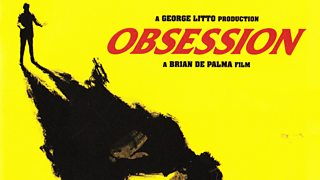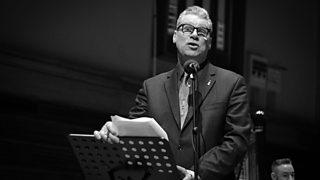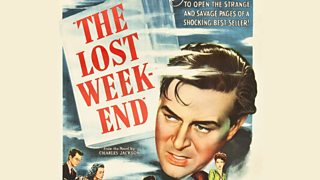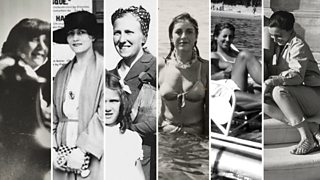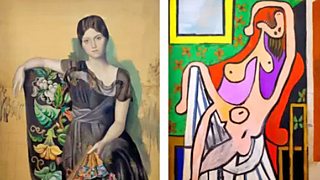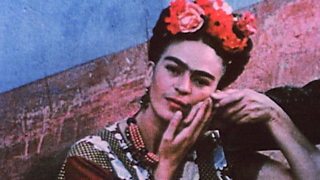Restoring a masterpiece: Jerry Goldsmith's classic Chinatown film score
18 July 2016
Imagine painting the Mona Lisa and then letting it rot in an attic. Amazingly, film soundtrack master tapes often find themselves in this predicament - poorly archived and forgotten. One such example was Jerry Goldsmith’s score for Chinatown. Set in 1930s Los Angeles, Roman Polanski’s 1974 thriller oozes atmosphere and style, thanks in large part to Goldsmith’s Oscar-nominated soundtrack. But when it came to re-releasing the music in full, it was far from straightforward for record producer DOUGLASS FAKE, one of a small band of experts dedicated to re-mastering and re-releasing old film scores. Here he explains how a stroke of luck let him fulfil a 30-year ambition to restore every cue of Goldsmith's music to its full glory.
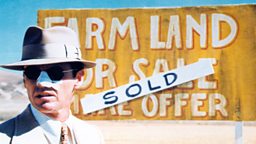
"Forget it, Jake. It's Chinatown." A classic line to close the story, delivered by private detective J.J. Gittes's associate, Walsh.
Gittes, played by Jack Nicholson, turns and slowly walks away. A crowd gathers, the end credits begin to roll and the weary, soulful trumpet of veteran Hollywood musician Uan Rasey ushers in the loneliest of all love themes composed by Jerry Goldsmith. And why not? In the end, J.J. Gittes just lost another client and would-be-lover. Talk about being alone. He's now two for two.
Goldsmith received an Oscar nomination for his score to Chinatown ...his music was brilliant, written in just under two weeks
Directed by Roman Polanski in 1974, Chinatown was a complex, stylish thriller set in 1930s Los Angeles.
Featuring Hollywood stars Jack Nicholson and Faye Dunaway at the peak of their powers, the film was hailed as modern masterpiece, winning the Best Original Screenplay Oscar and picking up a host of other nominations.
Jerry Goldsmith's score was one of those nominations. He lost to Nino Rota and his score for The Godfather Part II, but Goldsmith should have one. His music for Chinatown was brilliant, written in just under two weeks.
I first worked with Jerry shortly after launching the Intrada label. In fact, our first album together, Poltergeist II, was only the second soundtrack our new label released. Together we produced in quick succession albums for Islands in the Stream, Extreme Prejudice and Night Crossing, among several others.
Working alongside him on Disney's Night Crossing for two days and then literally jumping right into Rent-A-Cop, an action tale with Burt Reynolds, I will always recall his mannerisms: not a lot of humour, not a lot of nonsense. Just work.
It was like that for the next 15 years or so, making dozens of CDs together. Introducing brand new scores, restoring and expanding earlier ones.
Chinatown was a favourite of Jerry's. Probably of everyone's, actually. Not just soundtrack fans, either. The entire movie-going populace. Expanding the original 1974 album would always be a goal of mine, but obstacles made it a challenge that took three decades to fully realise.
For decades, film studios treated many of their music masters as little more than dead weight
Licensing was one hurdle, but actually the easiest of the bumps in our road. Finding suitable master tapes to the complete score were the biggest hurdles.
Jerry had retained a mono 1/4" tape copy of the Chinatown recordings for his own use. In the late 80s he kindly transferred the tape to a DAT cassette and gave it to me as a gift.
He always felt the original album was perfect and saw no real reason to ever expand it, so this mono tape was simply relegated to his own vault. It was a fortuitous decision on his part to keep it.
Trying to find the original recording session elements that would yield the complete score in stereo simply brought us to a dead end. Sadly, the session masters had been lost to the ages - the single biggest hurdle blocking efforts by labels like ours to restore these precious soundtracks.
Chinatown is not just an isolated case, either. For decades, film studios treated many of their music masters as little more than dead weight taking up valuable storage space. And sometimes even what they did keep was allowed to deteriorate beyond repair.
Some of this is changing now because labels such as Intrada are financing the restoration of numerous scores and helping find and develop new audiences that appreciate this music.
Film studios have finally recognised that there is merit, both monetary and historical, in maintaining their vaults and licensing the music to interested labels. So hope continues to spring eternal.
There isn't a composer in film today who has not been influenced in some way by Jerry Goldsmith
This audio situation mirrors the video revolution that began around 1975 or so with the videocassette market. A product allowing people to own movies was introduced.
Entire audiences were willing to rent, buy or even record old movies and build their own libraries. Restoring movie scores and producing them for fans was not far behind.
Just a decade later, Intrada was launched and helped pave the way for a new interest in film music. Today, the restoration of films for the DVD and Blu-ray market has spawned an interest by the studios to present their older films with meticulous care.
Often a welcome result of these efforts is that once-lost music masters are being located. And this finally allows us to go in, restore the ageing rolls of tape and make them available - much to the delight of soundtrack collectors.
Circle back to Chinatown. While the session masters were lost, the music itself was not. I had kept that precious DAT cassette Jerry had made for me. I knew where it was.
And it now appeared that this DAT was the only surviving, authentic master-quality recording of every cue Jerry Goldsmith had written for the movie.
It was in good condition so "restoring" it simply meant addressing some tape hiss and cleaning up various room noises and verbal slates read during the recording sessions. Mastering the never-before-released music and preparing the packaging quickly followed and the rest is, as they say... well, history.
There isn't a composer in film today who has not been influenced in some way by Jerry Goldsmith. He got started with movie music in 1957 and changed the entire industry. It helped make it an genuine art form. For another half century, he continued to invent new sounds and rarely looked back.
Chinatown is one of his greatest film scoring achievements - maybe his greatest. It's probably the best picture he ever scored. Anyway, one thing is certain. Restoring the complete score he wrote for it was an honour.
Clip: Composing Chinatown
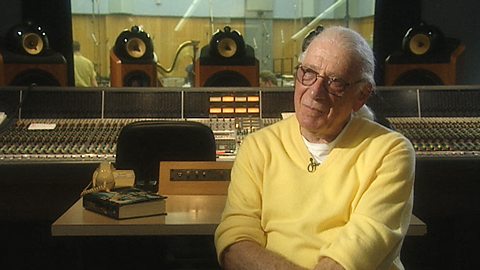
Jerry Goldsmith discusses his score for Chinatown
Jerry Goldsmith talks to Film 2000 about his score for 1974 noir thriller Chinatown.
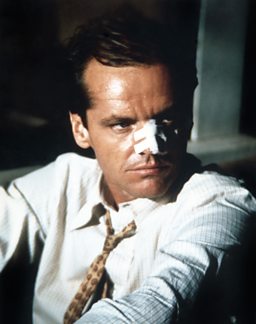
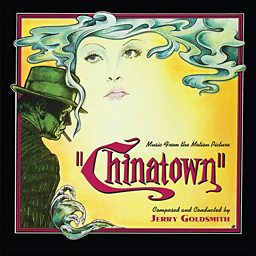

More from BBC Arts
-
![]()
Picasso’s ex-factor
Who are the six women who shaped his life and work?
-
![]()
Quiz: Picasso or pixel?
Can you separate the AI fakes from genuine paintings by Pablo Picasso?
-
![]()
Frida: Fiery, fierce and passionate
The extraordinary life of Mexican artist Frida Kahlo, in her own words
-
![]()
Proms 2023: The best bits
From Yuja Wang to Northern Soul, handpicked stand-out moments from this year's Proms

